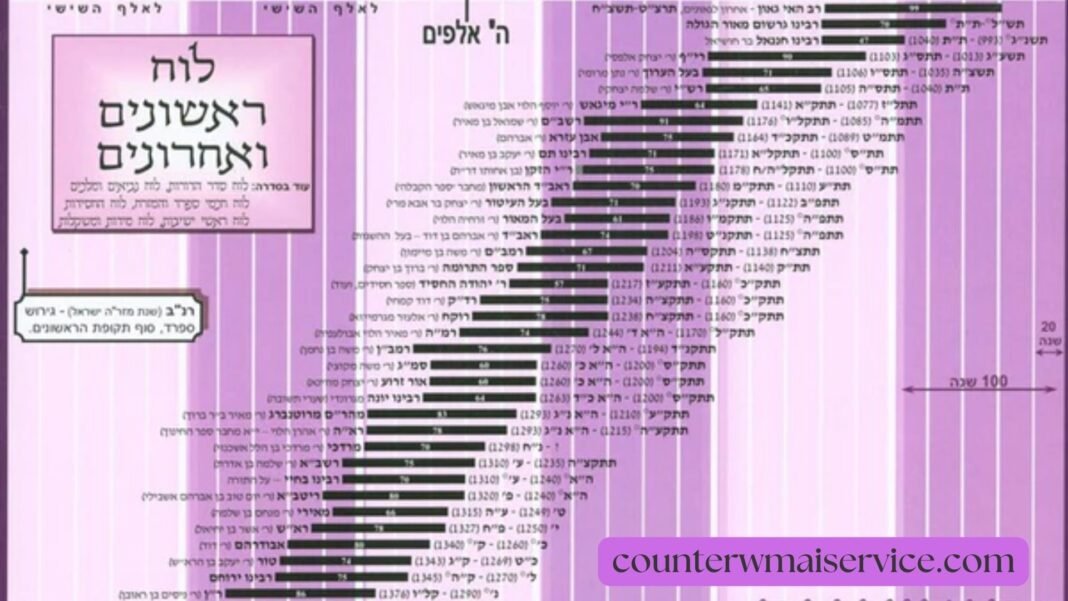In Jewish tradition, blessings and prayers play a central role in daily life, guiding and elevating everyday actions. One such significant prayer is Al hamichya text 1000 a blessing recited after consuming certain foods. This prayer, rooted in gratitude and spirituality, offers a deeper connection to the divine through the act of eating. In this article, we will explore the origins, meaning, and significance of Al HaMichya, delving into its text and the foods that necessitate its recitation.
Origins of Al HaMichya
Al HaMichya, also known as the “Me’ein Shalosh” (an abridged version of three blessings), is a rabbinic blessing derived from the Torah commandment to recite a blessing after eating. The primary source for this commandment is found in Deuteronomy 8:10: “And you shall eat, and be satisfied, and bless the Lord your God for the good land which He has given you.”
The Sages established different blessings for different types of food, ensuring that gratitude is expressed appropriately. Al HaMichya is specifically recited after eating foods that fall into one of the following categories:
1. Mezonot: Foods made from the five grains (wheat, barley, spelt, oats, and rye) that are not bread, such as cakes, cookies, pasta, and certain cereals.
2. Gefen: Wine or grape juice.
3. Eitz: Fruits from the seven species for which the Land of Israel is praised, such as grapes, figs, pomegranates, olives, and dates.
The Text of Al HaMichya
The Al HaMichya blessing is a beautifully structured prayer that encapsulates praise, thanks, and a plea for continued sustenance and redemption. Here is the text of Al HaMichya in Hebrew and its English translation:
Hebrew:
ברוך אתה ה’ אלוקינו מלך העולם, על המחיה ועל הכלכלה ועל תנובת השדה ועל ארץ חמדה טובה ורחבה שרצית והנחלת לאבותינו לאכול מפריה ולשבוע מטובה. רחם ה’ אלוקינו על ישראל עמך ועל ירושלים עירך ועל ציון משכן כבודך ועל מזבחך ועל היכלך. ובנה ירושלים עיר הקודש במהרה בימינו, והעלנו לתוכה ושמחנו בה. כי אתה ה’ טוב ומטיב לכל ומברך את עמו ישראל בכל עת ובכל שעה בשלומך. ברוך אתה ה’ על הארץ ועל המחיה.
English:
“Blessed are You, Lord our God, King of the universe, for the nourishment and for the sustenance, for the produce of the field, and for the desirable, good, and spacious land which You desired and gave as an inheritance to our forefathers, to eat of its fruit and be satisfied with its goodness. Have mercy, Lord our God, on Israel Your people, on Jerusalem Your city, on Zion the dwelling place of Your glory, on Your altar, and on Your Temple. Rebuild Jerusalem, the holy city, speedily in our days. Bring us up into it and gladden us in it, for You are good and do good to all. Blessed are You, Lord, for the land and for the nourishment.”
Significance and Themes
The Al HaMichya blessing is rich in themes and significance, each word and phrase chosen to reflect a deep connection to God, the Land of Israel, and the sustenance provided by both. Here are some key themes and their meanings:
1. Gratitude for Sustenance: The prayer begins with thanks for nourishment and sustenance, acknowledging God’s role in providing food. This reminds us to be grateful for the physical nourishment that sustains our bodies.
2. Connection to the Land of Israel: Al HaMichya emphasizes the goodness of the Land of Israel, praising it as a desirable and spacious land. This connection reinforces the historical and spiritual bond between the Jewish people and their homeland.
3. Plea for Mercy and Redemption: The prayer includes a plea for God’s mercy on the Jewish people, Jerusalem, Zion, and the Temple. It expresses a longing for the rebuilding of Jerusalem and the return of the Jewish people to their land, highlighting the themes of redemption and divine mercy.
4. Universal Goodness: The blessing concludes by recognizing God’s goodness to all and His continuous blessings upon the Jewish people. This universal aspect underscores the belief in a benevolent and caring deity who provides for all creation.
When to Recite Al HaMichya
Al HaMichya is recited after consuming an amount of food or drink that is considered significant enough to require a blessing, known as a “kezayit” (approximately the size of an olive) for solid foods or a “revi’it” (a quarter of a log, roughly 3.3 ounces) for liquids. If one consumes less than these amounts, the full Al HaMichya blessing is not recited.
Conclusion
Al HaMichya is more than just a post-meal blessing; it is a moment of spiritual reflection and gratitude. Through its recitation, individuals are reminded of the divine source of their sustenance, the special significance of the Land of Israel, and the broader themes of mercy and redemption. By integrating this blessing into daily life, one can cultivate a deeper appreciation for the simple act of eating and the profound spiritual connections it fosters.


